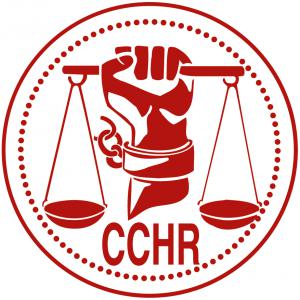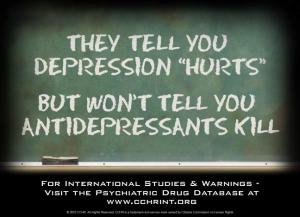Tardive Dyskinesia Awareness Week Sheds Light on Dangerous Psychiatric Drug Side Effects

The Florida chapter of CCHR is a non-profit mental health watchdog dedicated to the protection of children.

According to data taken from the IQVia Total Patient Tracker Database for Year 2019, extracted February 2020, 61,262 children between the ages of 0-5 years are prescribed antipsychotics in the US.
1 in 6 Americans takes a psychiatric drug with antidepressants being the most common, followed by anxiety relievers and antipsychotics.
Tardive dyskinesia (TD) is a side effect associated with antipsychotics and research completed by the Citizens Commission on Human Rights (CCHR) found that at least 500,000 Americans prescribed antipsychotics could have TD. [1]
TD is just one of many side effects associated with psychiatric drugs. There are at least 17 drug regulatory agency warnings of addiction or withdrawal effects linked to psychiatric drugs, including antidepressants and with more than 34 million Americans taking antidepressants in 2013-14, addiction and withdrawal is a growing problem. [2]
British psychiatrist, Joanna Moncrieff, writing in Critical Psychiatry said, “We associate withdrawal effects with long-term use, but in fact, the body can change, temporarily, even after a single dose of a drug.” Withdrawing from antidepressants and benzodiazepines (sedative hypnotics like diazepam and alprazolam) can take “years after the drugs are stopped,” Moncrieff warned. [3]
Last year, The New Yorker provided an example of the all too often scenario of doctors and psychiatrists doling out cocktails of mind-altering drugs, then increasing the dosages as fast as it takes to pick up a prescription pad.
In the article, “The Challenge of Going Off Psychiatric Drugs,” these risks were exposed through the story of Laura Delano, whose father is related to Franklin Delano Roosevelt. As a teenager, Laura mimicked fellow students cutting themselves and was referred to a psychiatrist who prescribed a mood stabilizer. Later, she was prescribed 20 milligrams of the antidepressant, fluoxetine and, when she “didn’t feel better, her dose was increased to 40 milligrams, and then to 60.” During her junior year, a pharmacologist raised this to 80 milligrams, the maximum recommended dose. This made her drowsy, so he prescribed 200 milligrams of modafinil, a drug soldiers and truck drivers take to stay awake during overnight shifts. [4]
According to The New Yorker, “In the course of a year, her doctors had created what’s known as ‘a prescription cascade’: the side effects of one medication are diagnosed as symptoms of another condition, leading to a succession of new prescriptions.”
Subsequently, Laura attempted suicide by overdosing on the unhelpful pills. However, she was found and admitted to a New York psychiatric facility, where she was started on another round of psychotropics. As the drugs changed, so did the diagnoses from the American Psychiatric Association’s “billing bible,” the Diagnostic & Statistical Manual for Mental Disorders (DSM). At one-point Laura was taking seven different drugs, including two antipsychotics, lithium and a medication to treat hypothyroidism, a side effect of the lithium.
Eventually, there were happier times for Laura, although only after she began tapering off the drugs, which CCHR stresses should be done under medical supervision.
CCHR says it is common for psychiatrists to cover up the iatrogenic effects of the drugs they prescribe by diagnosing adverse effects as another disorder. While there are many DSM disorders for putting patients on mind-altering drugs, as The New Yorker points out, there are almost no studies on how or when to go off psychiatric drugs, a situation that has created what one doctor calls a “national public-health experiment.” [5]
Dr. Moncrieff points out that the symptoms of benzodiazepine and antidepressant withdrawal “usually improve gradually” but this could take “months and sometimes years.” In April 2018, The New York Times also reported that “many people taking antidepressants discover they cannot quit.” In this article, Victoria Toline said it took her nine months to wean off the antidepressant she’d been prescribed. The New York Times article cited a survey of 250-long term users of psychiatric drugs—most commonly antidepressants—where about half who wound down their prescriptions rated the withdrawal as severe. Nearly half who tried to quit could not do so because of these symptoms. [6,7]
CCHR says its publications and award-winning documentaries long ago dispelled the myth that a “chemical imbalance” caused depression, requiring an antidepressant to correct it. It also exposed how an antidepressant manufacturer invented the term “discontinuation syndrome” to obfuscate the addictive potential of antidepressants. Psychiatrists profit from “Antidepressant Discontinuation Syndrome” which has its own billing code in the DSM. [8,9]
They profit also from drug damage. Pharmaceutical companies and psychiatrists covered up how antipsychotics can also cause “neuroleptic malignant syndrome” (NMS)—a potentially fatal toxic reaction where patients break into fevers and become confused, agitated and extremely rigid. An estimated 100,000 Americans have died from it. Both Tardive Dyskinesia and NMS feature in DSM as billable disorders to treat.
To learn more, please call 727-442-8820 or visit www.cchrflorida.org. CCHR also operates a hotline to report mental health abuse and this hotline, 800-782-2878, is open despite COVID-19 restrictions.
About CCHR: Initially established by the Church of Scientology and renowned psychiatrist Dr. Thomas Szasz in 1969, CCHR’s mission is to eradicate abuses committed under the guise of mental health and enact patient and consumer protections. L. Ron Hubbard, founder of Scientology, first brought psychiatric imprisonment to wide public notice: “Thousands and thousands are seized without process of law, every week, over the ‘free world’ tortured, castrated, killed. All in the name of ‘mental health,’” he wrote in March 1969.
Sources:
[1] Tardive Dyskinesia Facts and Figures https://www.psychiatrictimes.com/tardive-dyskinesia/tardive-dyskinesia-facts-and-figures
[2] The Side Effects of Common Psychiatric Drugs https://www.cchr.org/sites/default/files/The_Side_Effects_of_Common_Psychiatric_Drugs.pdf
[3] Joanna Moncrief, “Persistent withdrawal and lasting damage from prescribed drugs,” Critical Psychiatry, 1 Apr. 2019, https://joannamoncrieff.com/2019/04/01/persistent-withdrawal-and-lasting-damage-from-prescribed-drugs/
[4] Rachel Aviv, “The Challenge of Going Off Psychiatric Drugs,” The New Yorker, 1 Apr. 2019, https://www.newyorker.com/magazine/2019/04/08/the-challenge-of-going-off-psychiatric-drugs
[5] Ibid.
[6] Op cit. Joanna Moncrief.
[7] “Many People Taking Antidepressants Discover They Cannot Quit,” New York Times, 7 Apr. 2018, https://www.nytimes.com/2018/04/07/health/antidepressants-withdrawal-prozac-cymbalta.html
[8] Dr. Joseph Mercola, “What Does the ‘Best Evidence’ Say About Antidepressants?” Mercola.com, 4 Apr. 2019, https://articles.mercola.com/sites/articles/archive/2019/04/04/antidepressants-health-risks.aspx
[9] Lenora KM, “Antidepressant Discontinuation Syndrome DSM-5 995.29 (T43.205A),” ThriveWorks 16 June 2017, https://thriveworks.com/blog/antidepressant-discontinuation-syndrome/
MENTAL HEALTH: 1 in 6 Americans Takes a Psychiatric Drug - Antidepressants were most common, followed by anxiety relievers and antipsychotics https://www.scientificamerican.com/article/1-in-6-americans-takes-a-psychiatric-drug/
Diane Stein
Citizens Commission on Human Rights of Florida
+1 (727) 422-8820
email us here
Visit us on social media:
Facebook
Twitter
LinkedIn
Psychotropic Drugs & Children - Allison Folmar, Voice for Humanity
Legal Disclaimer:
EIN Presswire provides this news content "as is" without warranty of any kind. We do not accept any responsibility or liability for the accuracy, content, images, videos, licenses, completeness, legality, or reliability of the information contained in this article. If you have any complaints or copyright issues related to this article, kindly contact the author above.



